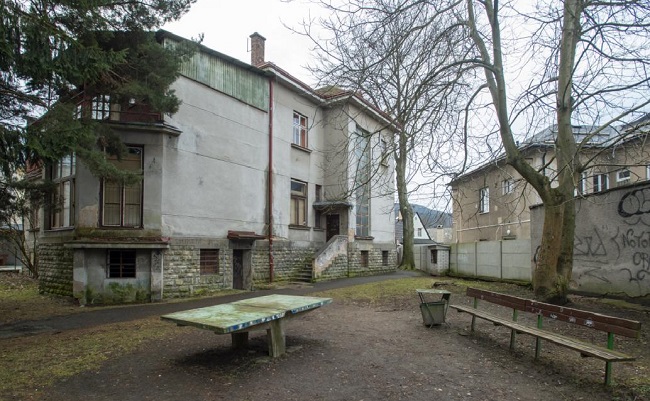
Ústí n. O. will demolish Jander's villa, it has no architectural value
 |
Ústí nad Orlicí – Ústí nad Orlicí will continue with the revitalization project of the park near the Roškot Theatre. Part of this includes the planned demolition of the so-called Jander Villa, against which a petition organized by two opposition councilors was created. A report from the National Heritage Institute, requested by the opponents of the demolition, along with a structural-historical survey, however, showed that the building is neither historically nor architecturally valuable, said Mayor Petr Hájek (the Oušťáci association) to reporters today.
"For the city leadership, it was most important how the National Heritage Institute would respond. We had already announced that we would not assess the petition based on the number of signatures, but according to expert opinion," Hájek stated.
The petition was signed by 1,229 people, of whom 303 have permanent residency in Ústí nad Orlicí. According to the mayor, this demonstrates that the petition does not resonate much among local residents.
The city also had a detailed calculation prepared regarding how much a potential reconstruction of the villa would cost. The final amount exceeded 30 million crowns, including VAT, while the town hall has no suitable use for the building. The demolition will cost 1.1 million crowns. In addition to the cleared space, a new facility with public toilets and amenities for the park caretaker will be built, utilizing the existing engineering networks.
The building was built in 1911 for the owner of a local textile factory and was reconstructed in 1934. After 2000, it was rented by the Pardubice Region for the House of Children and Youth. Ústí bought the Jander Villa, including the garden, in 2014 from the restitutionists, who had offered it for sale for several years, but there was no interest despite lowering the price. The town hall wanted to prevent access to the park near the theatre from Lukesova Street from becoming complicated, and was already considering its demolition at that time.
According to the heritage experts' report, the building is essentially an ordinary house conforming to the architecture of its time. "It does not exhibit any architectural-historical or urban-historical value and is viewed as a typical property from the interwar period. The values it possesses do not provide grounds for it to be declared a cultural monument or otherwise protected," Hájek stated.
The new concept for the park anticipates its integration with the Roškot Theatre, a national cultural monument. It is to become a place for relaxation and walks, aided by mature greenery. The space in front of the theatre entrance is set to change, where a viewpoint and resting terrace will be created under newly planted trees. Outdoor cultural events at the theatre are popular across generations, and a newly proposed amphitheater with a covered stage could serve this purpose. Under the resting terrace, there will be tiered seating that can be sat on, serving a second function as an audience area. The park will also feature a covered pergola, a water element, or a nature-themed playground; the attractiveness of the new zone is to be enhanced by a café that will be located in the basement of the Roškot Theatre and connected to the park via an outdoor terrace. Access to the park will be from three directions: from Husova, Ježkova, and Lukesova streets.
The revitalization of the park near the theatre is expected to begin this year, with completion planned for the end of 2023. The total costs are estimated at 30 million crowns.
The English translation is powered by AI tool. Switch to Czech to view the original text source.
Related articles
0
15.08.2025 | Ústí nad Orlicí opened the revitalized park by the Roškot Theatre
1
03.07.2024 | The renovation of the park at Roškotova Theatre in Ústí nad Orlicí will be completed in spring 2025
0
31.01.2023 | Workers are clearing Jander's villa in Ústí nad Orlicí, preparing it for demolition
3
01.01.2022 | Petition against the demolition of the villa of industrialist Jandera in Ústí nad Orlicí









